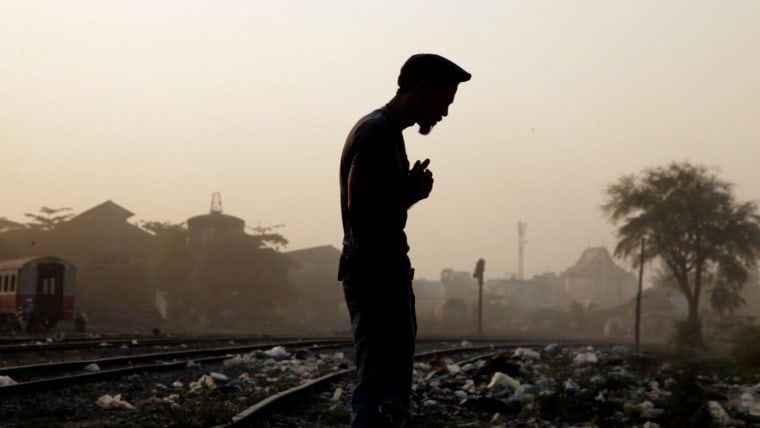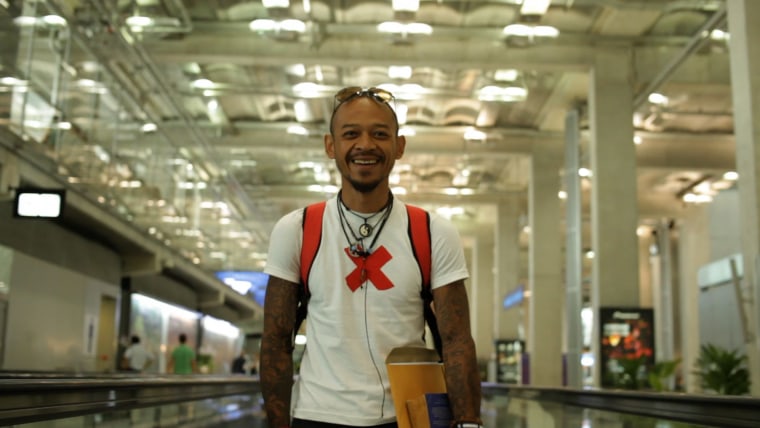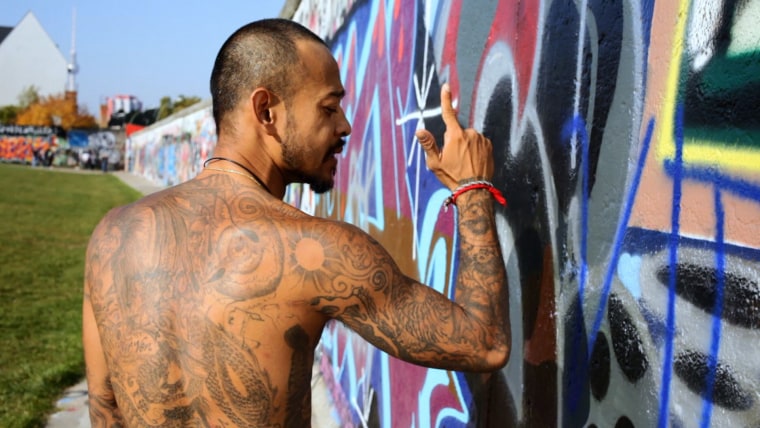It was during solitary confinement when Cambodian American spoken word artist, Kosal Khiev, found his voice through a weekly prison writing program.
Having made some bad decisions as a teenager, Khiev was arrested at fifteen after a gang-led shooting. A year later, he was found guilty by association for attempted murder and sentenced to 16 years in prison.
“There was no compassion,” said Khiev. “It was my first offense and I had never been arrested for anything else. I was only 16. I was tried as an adult and treated like a monster.”
Khiev was born in 1980 in a Thai refugee camp, where his family sought safety from U.S. military bombings and the Khmer Rouge. He moved to California in 1981 and grew up in poverty with his single mother and six siblings.
Khiev and his family struggled to adjust to life in America, like other Cambodian refugee families still feeling the weight of the emotional and psychological side effects of their escape. The Journal of the American Medical Association found that 62% of Cambodian refugees surveyed suffered from Post Traumatic Stress Disorder. Another study, from UCLA, found that those PTSD symptoms can be passed down through families, and manifest themselves in later generations through rebellious attitudes, gang involvement, and criminal activity.

Khiev's story was no exception. As he fumbled to find his footing, gang life offered solid ground.
“I always felt different from my siblings and struggled to fit in,” said Khiev. “In the gang, I found a sense of family and belonging.”
Looking back, with the benefit of years of hindsight, Khiev - now 35 - sees clearly where he went astray - where his search for stability led him down the wrong path.
“If I could do it over again," he said, "I would choose differently.”
Still, it was this path that led Khiev to poetry. In prison, he wrote and performed as a means of survival, channeling his anger and frustration into an optimistic outlet.
“This isn’t the freedom I wanted but this is what has been given to me"
“There is always hope at the end,” said Khiev. “The poetry helps me find a way out of everything I am going through.”
He served 14 years in prison - 85 percent of his sentence through a plea bargain - bouncing across nine different California state facilities.
After serving 14 years (85% of the sentence through a plea bargain) in 9 different California state prisons, Khiev was punished again and immediately seized by Immigration Custody Enforcement (ICE) for another year of detention. Under the 1996 Illegal Immigration Reform and Immigrant Responsibility Act, Khiev could be punished again for his crimes. Before he had a chance to go home and see his family, Khiev was deported to Cambodia — the country his family once fled. Under the 2002 U.S. Cambodian Repatriation Agreement, Khiev was stripped of all rights to ever enter the United States again - a free man finally, but in a country he'd never known.
“This isn’t the freedom I wanted but this is what has been given to me,” said Khiev.
When he arrived in Cambodia for the first time in his life in 2011, he joined a community of Exilers — deported Americans — who supported each other. Through this network he met filmmaker, Masahiro Sugano, and multimedia artist, Anida Yoeu Ali — the powerhouse couple behind Studio Revolt.
Khiev asked Sugano and Ali to help tell his life story to the world. At first, they hesitated. Then Ali heard Khiev perform his poetry for the first time. "It grabbed my guts and shook me teary eyed," recalled Ali. "Since that moment sometime in July 2011, our paths have intertwined into both a journey and collaboration.” Soon after, “Cambodian Son,” was born — a documentary film about Kosal Khiev’s journey to redefine his place in the world from “ex-American prisoner to world-class poet.”
In 2012, Khiev received the greatest honor yet — an invitation to represent the Kingdom of Cambodia at the London 2012 Cultural Olympiad. “Given the historic context [of Cambodia] that at one point, all educated people were targets for slaughter or sent to the labor camps, especially artists,” said Khiev. “I felt it was important to showcase that Cambodia was finally part of an international poetry event…for me, it was about Cambodia’s rise from the ashes and I was just a very small part of it.”
Khiev’s story — which lies at the intersection of deportation, American justice system, Khmer Rouge, Cambodia and transformational power of art — is not an easy story to tell. Sugano, director of “Cambodian Son,” admits that he almost dropped out of the project after 2 weeks of filming. “I had to remind myself so many times that I couldn’t do this film for my career or for Kosal’s career,” said Sugano.” I had to do it for a bigger picture and bigger purpose than all of us.”

Khiev was only one of nearly 2 million people deported from the United States between 2009 and 2013 — the highest rate of deportations in American history.
Ali, the film’s producer, explains that the goal of the film is to humanize the issue of deportation and reach millions. “Laws can only be changed if we can change the culture which created the policies,” said Ali. “Kosal’s story…has everything to do with history, geo-politics, war, circumstances, and failed systems which created him, then destroyed his life, and now rebirthing him once again.”
Since “Cambodian Son” premiered in 2014, Khiev’s story has reached audiences around the globe, including Beijing, Berlin, Lebanon, Singapore and two U.S. tours — with two screenings inside American prisons. Currently, Khiev is committed to writing and empowering local youth in Phnom Penh, where he often visits schools and youth centers.
“There really is an emergence of artists in Cambodia — it’s something I can feel as I have lived here,” said Khiev. “This film is more than just about me.”
“Cambodian Son” will have its broadcast premiere on Tuesday, May 19th 8/7c on WORLD Channel.
Like NBC Asian America on Facebook and follow us on Twitter.
